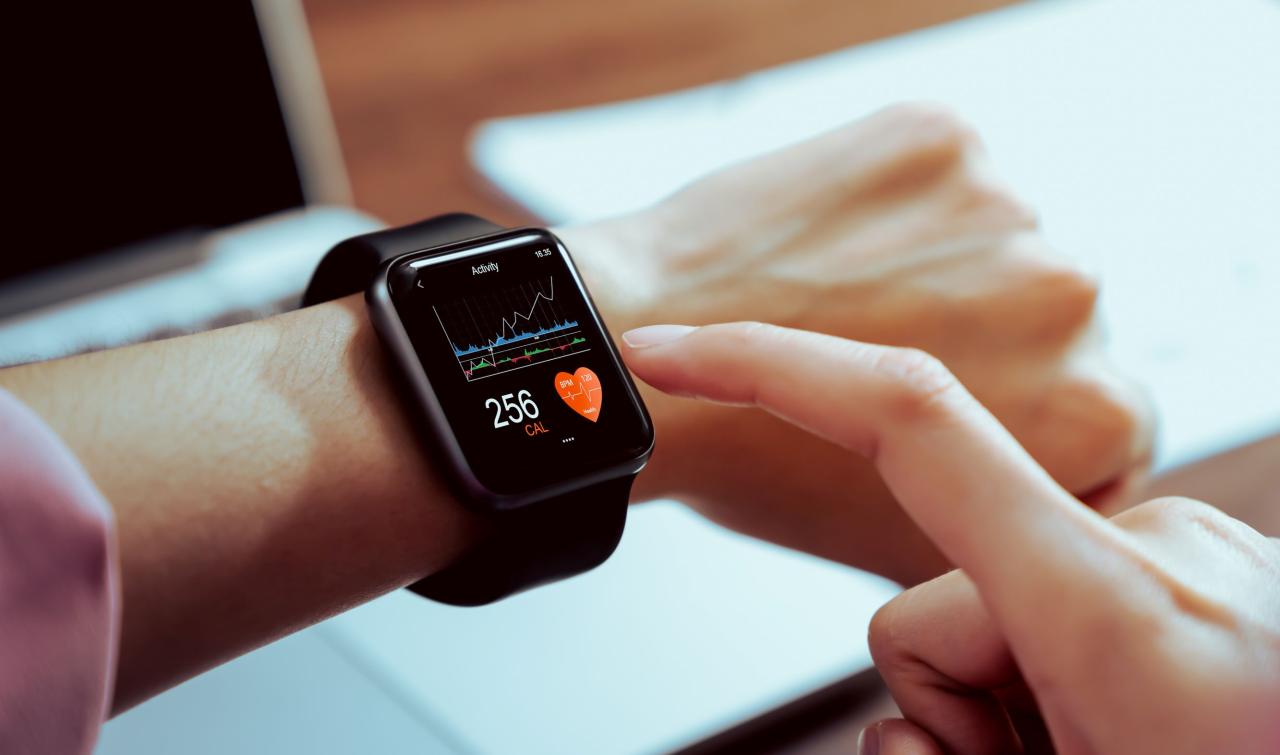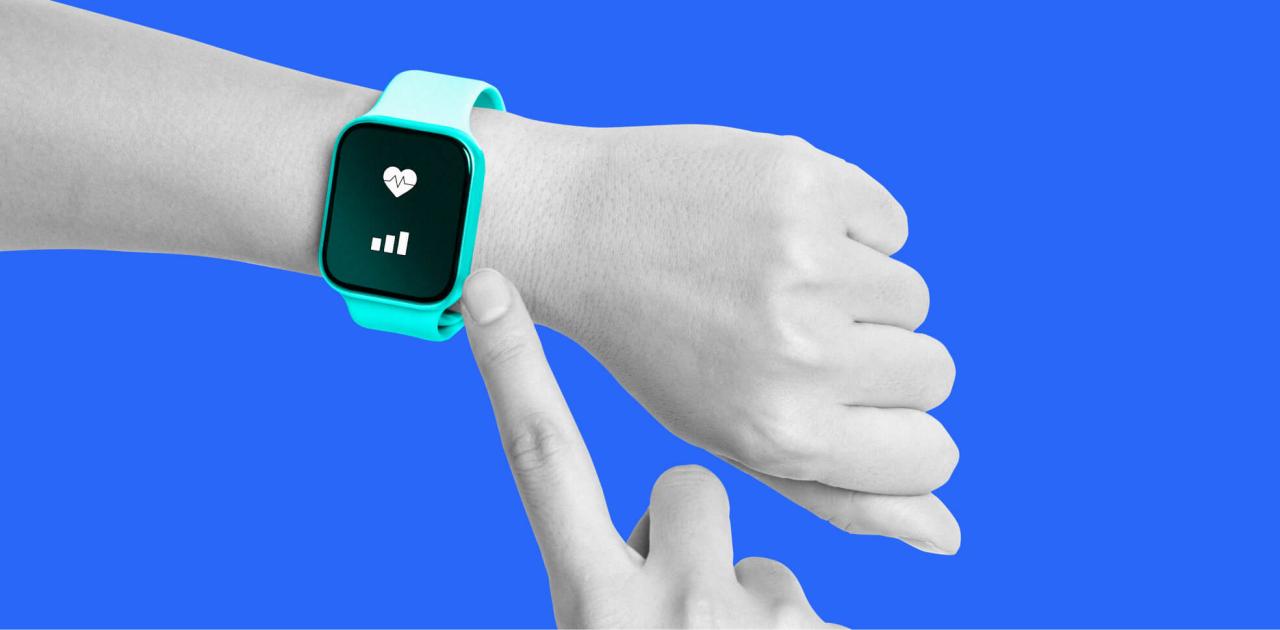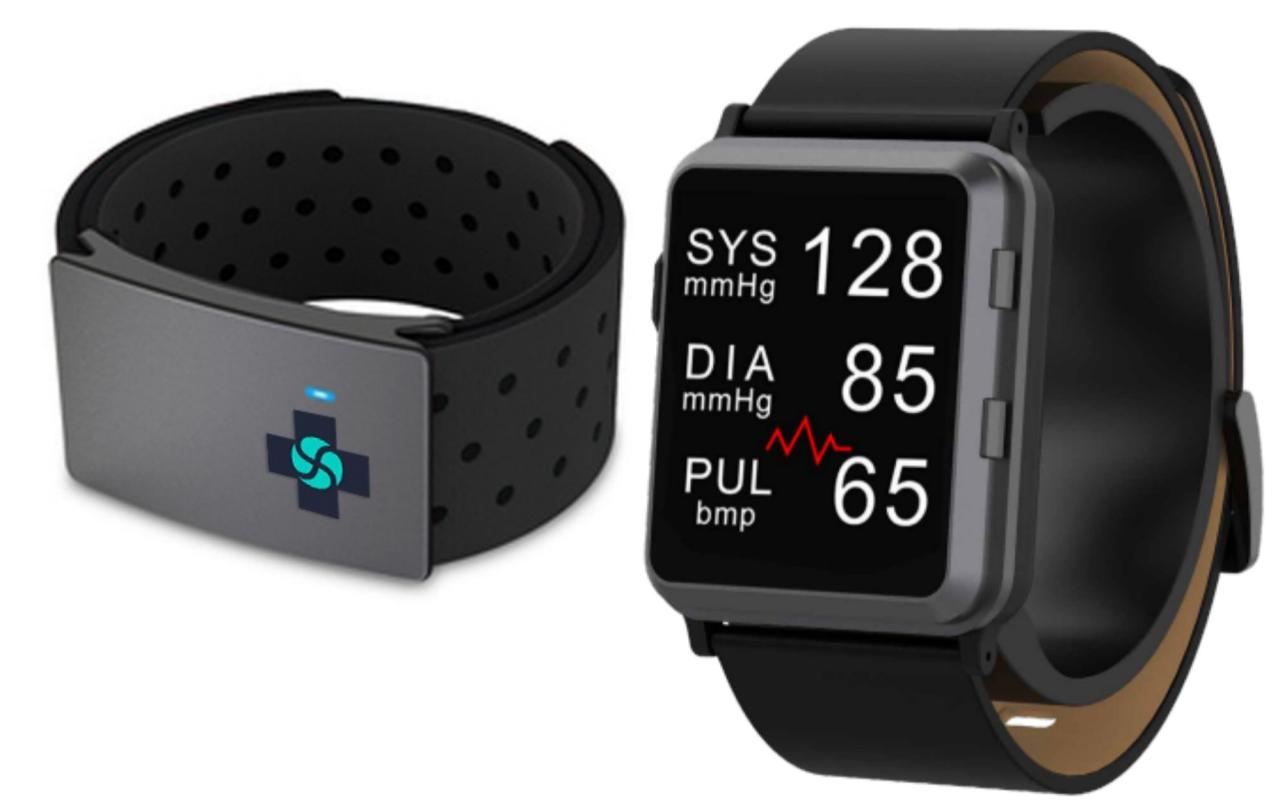In the realm of modern healthcare, smart wearable devices for health monitoring have emerged as indispensable tools, shaping the way we track and manage our well-being. This captivating overview delves into the transformative impact of these devices, offering a glimpse into the future of personalized health monitoring.
The following paragraphs will delve deeper into the types of smart wearable devices, the technology powering them, their applications in health monitoring, as well as the challenges and limitations they face.
Introduction to Smart Wearable Devices for Health Monitoring
Smart wearable devices for health monitoring refer to electronic devices that are worn on the body and can track various health metrics in real-time. These devices are equipped with sensors and technology to monitor vital signs, physical activity, sleep patterns, and other health-related data.The importance of smart wearable devices in modern healthcare cannot be overstated.
These devices provide individuals with valuable insights into their health, allowing for early detection of potential health issues and enabling proactive management of chronic conditions. By continuously monitoring key health indicators, smart wearables empower users to make informed decisions about their health and well-being.Smart wearable devices have revolutionized health monitoring by providing convenient and non-invasive ways to track health metrics.
Unlike traditional medical devices that are bulky and require frequent visits to healthcare facilities, smart wearables offer continuous monitoring and real-time feedback, allowing for personalized and proactive health management. With the integration of advanced technologies like artificial intelligence and machine learning, these devices are becoming increasingly sophisticated in analyzing and interpreting health data.
Types of Smart Wearable Devices

Smart wearable devices come in various forms and types, each offering unique features and functionalities for health monitoring. Let's explore some of the most common types below.
Fitness Trackers
Fitness trackers are wearable devices designed to monitor physical activity, such as steps taken, distance traveled, and calories burned. These devices often come with sensors to track heart rate, sleep patterns, and even GPS for outdoor activities. Fitness trackers are popular for individuals looking to monitor their daily activity levels and improve their overall fitness.
Smartwatches
Smartwatches are multifunctional wearable devices that not only tell time but also offer features for health monitoring. Smartwatches can track physical activity, heart rate, sleep quality, and even provide notifications for calls and messages. Some smartwatches also come with ECG capabilities to monitor heart health.
Smartwatches are versatile devices that combine style with functionality for health-conscious individuals.
Health Monitoring Patches
Health monitoring patches are adhesive wearable devices that can be attached to the skin to track various health metrics. These patches can monitor vital signs like heart rate, temperature, and even hydration levels. Health monitoring patches are discreet and convenient for continuous monitoring without the need for bulky devices.
They are particularly useful for individuals with specific health conditions or those looking for continuous health tracking.Each type of smart wearable device offers its own set of benefits and functionalities for health monitoring. Whether you prefer the simplicity of a fitness tracker, the versatility of a smartwatch, or the discreet monitoring of a health patch, there is a wearable device to suit your needs and lifestyle.
Technology Behind Smart Wearable Devices

Smart wearable devices for health monitoring rely on a combination of advanced sensors, connectivity features, and processing capabilities to collect, analyze, and transmit data. These devices have evolved significantly over the years, incorporating cutting-edge technology to enhance their accuracy and efficiency in tracking various health parameters.
Sensors
Smart wearable devices are equipped with various sensors that enable them to monitor different health metrics such as heart rate, blood pressure, oxygen saturation, activity levels, and sleep patterns. These sensors work by detecting and measuring specific physiological signals from the body, providing real-time data for analysis.
Connectivity
In terms of connectivity, smart wearable devices utilize technologies like Bluetooth, Wi-Fi, or cellular networks to sync data with smartphones or cloud-based platforms. This connectivity allows users to access their health information remotely, share it with healthcare providers, or receive alerts and notifications based on their data.
Processing
The processing capabilities of smart wearable devices have improved significantly, thanks to advancements in microprocessors and algorithms. These devices can now perform complex calculations and analysis on the collected data, providing valuable insights into the user's health status and trends over time.
Advancements in Technology
Recent advancements in technology, such as the integration of artificial intelligence and machine learning algorithms, have further enhanced the accuracy and efficiency of smart wearable devices. These technologies enable the devices to adapt to individual user behavior, provide personalized recommendations, and continuously improve their performance based on user feedback.
Applications of Smart Wearable Devices in Health Monitoring
Smart wearable devices have revolutionized the way we monitor our health by providing real-time data on various parameters. These devices play a crucial role in managing chronic diseases and promoting preventive healthcare
Monitoring Health Parameters
- Heart Rate: Smart wearable devices can track heart rate continuously, providing valuable insights into cardiac health and exercise intensity.
- Sleep Patterns: By monitoring sleep patterns, these devices can help users improve sleep quality and identify issues like insomnia or sleep apnea.
- Physical Activity: Smart wearables track steps taken, calories burned, and activity levels, encouraging users to stay active and meet fitness goals.
Chronic Disease Management and Preventive Healthcare
- Hypertension: Smart wearable devices can monitor blood pressure throughout the day, helping individuals manage hypertension more effectively.
- Diabetes: Continuous glucose monitoring via wearables enables better control of blood sugar levels and early detection of hypoglycemia or hyperglycemia.
- Early Disease Detection: Wearables can detect irregularities in vital signs, alerting users to seek medical attention early and prevent complications.
Case Studies and Success Stories
- Athlete Performance: Professional athletes use smart wearables to optimize training routines, prevent injuries, and improve performance based on data analytics.
- Remote Patient Monitoring: Healthcare providers use wearables to remotely monitor patients with chronic conditions, reducing hospital visits and improving outcomes.
- Weight Management: Individuals use smart scales and fitness trackers to monitor weight loss progress, set realistic goals, and stay motivated throughout their journey.
Challenges and Limitations of Smart Wearable Devices
Smart wearable devices have revolutionized health monitoring, but they also come with their own set of challenges and limitations that need to be addressed for optimal use.
Data Accuracy
One of the primary challenges with smart wearable devices is ensuring the accuracy of the data collected. Factors such as sensor quality, placement on the body, and user movement can all impact the reliability of the data. Inaccurate data can lead to incorrect health assessments and recommendations, highlighting the need for improved sensor technology and data validation processes.
Privacy Concerns
Another major challenge is the privacy of the data collected by smart wearable devices. Users may be hesitant to share sensitive health information with third-party apps or companies, raising concerns about data security and potential breaches. Addressing privacy concerns through robust data encryption, user consent mechanisms, and transparent data practices is essential to build trust with users.
User Adherence
While smart wearable devices offer convenience and real-time monitoring, user adherence remains a limitation. Some users may forget to wear the device regularly, leading to gaps in data collection and analysis. Improving user engagement through personalized feedback, goal setting, and reminders can help enhance user adherence and maximize the benefits of wearable health monitoring.
Limitations in Current Technology
Current smart wearable technology still faces limitations in terms of battery life, data processing capabilities, and compatibility with other devices or platforms. Enhancements in battery efficiency, data analytics algorithms, and interoperability standards are needed to overcome these limitations and improve the overall functionality of smart wearable devices.
Addressing Challenges and Limitations
To enhance the effectiveness of smart wearable devices for health monitoring, a multi-faceted approach is required. This includes continuous research and development efforts to improve sensor accuracy, data security protocols, and user engagement features. Collaboration between technology developers, healthcare professionals, and regulatory bodies is crucial to address these challenges and unlock the full potential of smart wearable devices in promoting health and wellness.
Closing Summary

As we conclude this exploration of smart wearable devices for health monitoring, it becomes evident that these innovative technologies hold immense potential in revolutionizing the landscape of healthcare. From enhancing data accuracy to promoting preventive health measures, the journey towards a healthier tomorrow is indeed paved with smart wearables.
Quick FAQs
How do smart wearable devices for health monitoring differ from traditional health monitoring devices?
Smart wearable devices offer continuous monitoring throughout the day, providing real-time data on various health parameters, unlike traditional devices that offer periodic readings.
Are smart wearable devices accurate in monitoring health parameters?
While smart wearable devices have improved accuracy, factors like device placement, skin type, and motion can still affect the precision of readings.
Do smart wearable devices have privacy implications?
Yes, as these devices collect personal health data, there are concerns about data security and privacy, prompting the need for stringent data protection measures.
Can smart wearable devices help in managing chronic diseases?
Smart wearable devices play a crucial role in monitoring chronic conditions like diabetes or heart disease, aiding individuals in tracking their health status more effectively.






